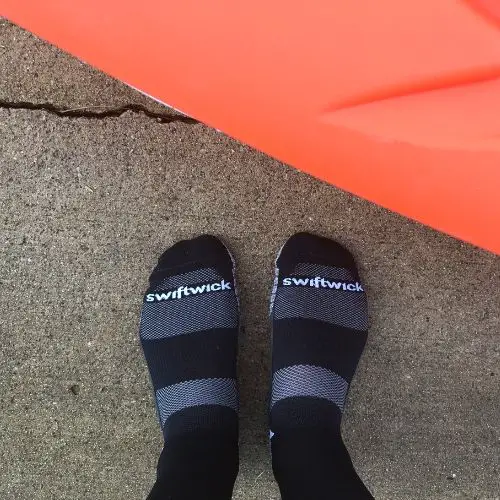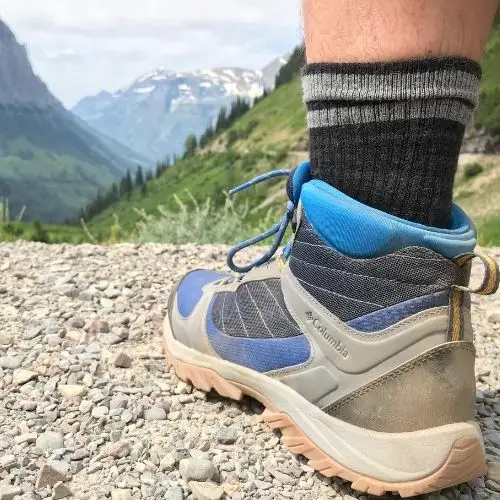We may get commissions for purchases made through links in this post. Thanks for the support! 👍
While you are hiking, you cannot rely on modern day technology too much, so you should be prepared to fend for yourself.
This list of the 10 hiking essentials is a guide on a few of the things that you should take on every hike away from civilization, whether that be a short weekend hike or a multi-month hiking adventure.
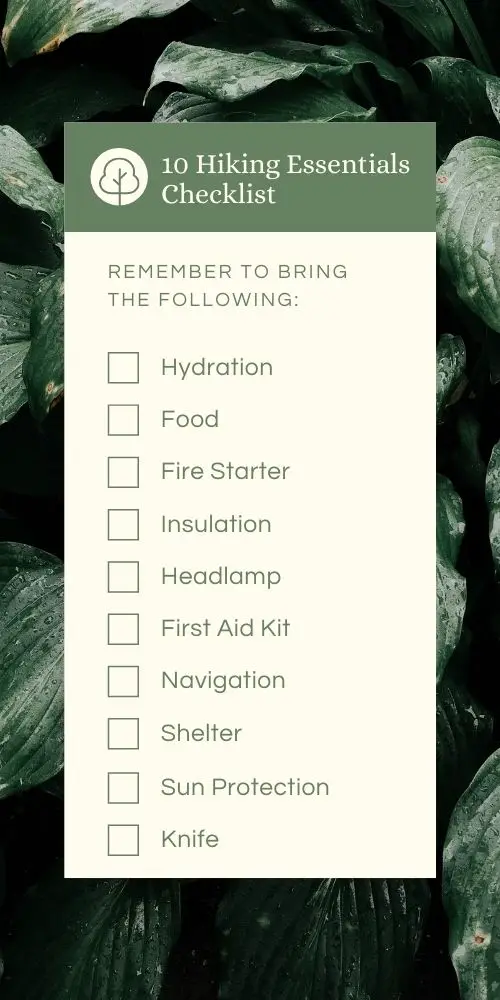
1. Hydration
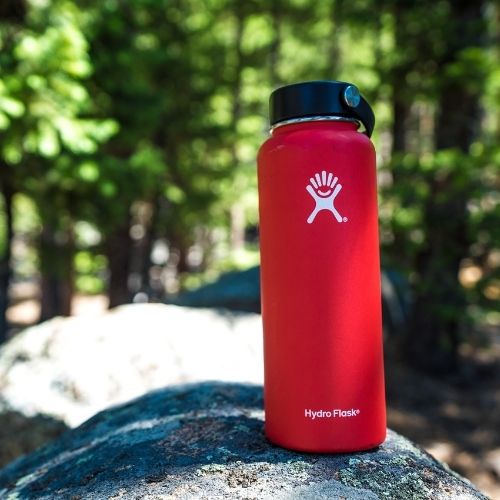
Out of all of the things you can take with you, water is by far the most important. If you are lost in the woods, or are 10 miles out your favorite long hike and are without water, it can be a huge deal.
Stay hydrated and try to carry more water than you think you will need.
Invest in a hydration pack that fits into your backpack. I personally own a CamelBak kinda like this one from REI, which works awesome. However for longer hikes, it doesn’t fit too many other items. So instead buying a larger water bladder like this one, and putting it into a compatible backpack seems to work awesome for longer hikes as well!
For longer hikes, get a small water purifier like a Lifestraw ,so that you can top up from any streams or ponds that you come across.
2. Take Food
I don’t know how often I pack everything into my pack, and totally forget that I am going to need food when out on the trail!
Fuel for your body. Pack more food than you think you will need. The best option to save weight is to take plenty of dense foods such as nuts and energy bars packed full of proteins and slow-release carbohydrates. These are great for shorter trips, however if you are out for longer periods of time, then full meals are a better bet.
If you are taking those longer hikes, then an MRE might be just for you! I have had quite a few of these in the past, and honestly, they are much better than you think. MRE stands for Meals Ready to Eat, and basically have everything you need to stay energized. This pack right here is a great option to buy in bulk for a decent price!
Staying well-fueled will help you to make better decisions and keep you focused. However, if you find yourself in a survival situation, try not to panic too much as the human body can survive without food for three weeks.
3. Fire Starter
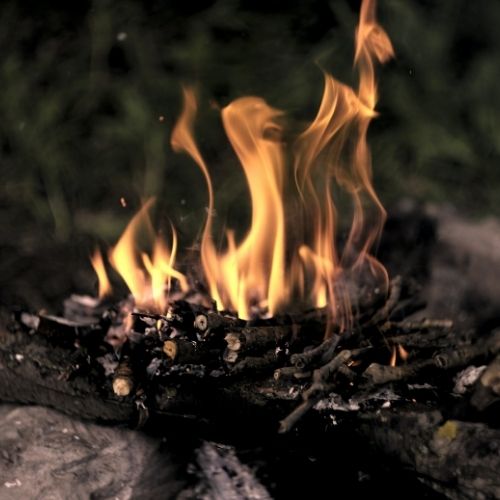
While it is one of the most primitive things on this list, it also is one of the most important.
Fire can not only save your life, but can also be a convenience that will heat water for your coffee, or heat up your meal.
Take something you can use to start a fire quickly if you need to: a windproof lighter (or even a cheap store lighter) or waterproof matches.
A fire can be used to cook, provide warmth or light, and even a rescue signal.
Before starting a fire, ensure that you start it away from combustible materials and keep it under control (preferably without having to waste water).
4. Insulation
Check the weather forecast and prepare for the worst. Modern clothing is lightweight and surprisingly warm (unlike jeans), so there is no harm in packing some spares.
Even if rain is not forecasted, always take a lightweight raincoat.
I recently bought this Montague Falls Ii Insulated Jacket by Columbia recently, and have been really impressed by its lightweight, and water resistant design, but also the warmth it keeps inside the coat as well.
It is easily packable, but heavy enough to keep me warm even in the winter.
The most important thing about insulation, is taking things that are lightweight enough that they don’t make you tired by taking them, but also are heavy enough, or warm enough to keep you warm in emergencies.
Another great option is to take an emergency blanket like these ones, they are extremely inexpensive, easy to store, and great in a pinch.
5. Flashlight or Headlamp and spare batteries
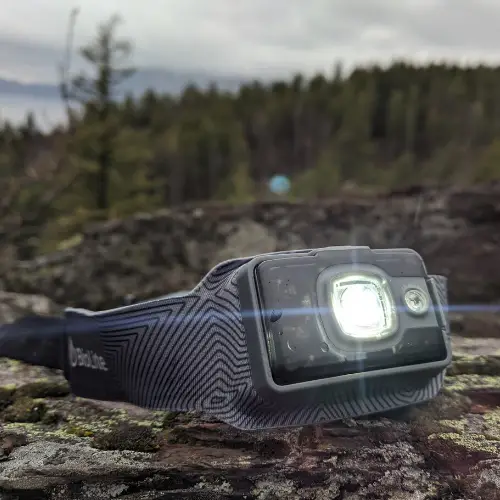
A headlamp is such a handy piece of kit as it frees up your hands when you could need them most.
I personally take my BioLite Headlamp 200 that I reviewed so many places. Basically whenever I think there is a possibility of it getting dark while I am out.
These lightweight headlamps are easy to transport, and perfect for hikes where you might just be out after dark.
Alternatively, a smaller, but powerful flashlight is a great option as well!
Pack some spare batteries or battery pack if you have a rechargeable headlight so that you do not find out you are out of juice when you need it most.
6. First Aid Kit
Hopefully, you will never need to use it on yourself or others.
However, a small portable first aid kit is an excellent piece of gear to be prepared should the worst happen.
If you want a smaller kit, this one right here might be great for your purposes!
7. Navigation
Smartphones are the go-to nowadays. Make sure you download an offline version of the terrain you are hiking in and take a portable battery pack. You can also get GPS watches that you can upload a track to.
If you are a little more traditional, you can always rely on the old school paper topographic maps or compass. Whatever you decide to take, always have a backup.
8. Shelter
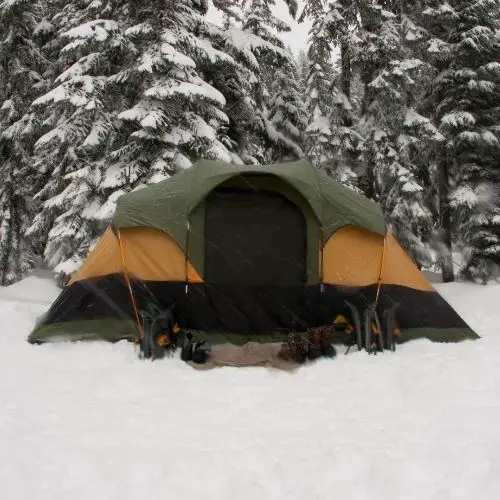
Even if you are not planning to camp out, be prepared with a solution should you need to make a shelter.
You can get lightweight backpacking tents, or even a bit of tarp and bivy sack will do the job in a survival situation.
A good hammock would also be an awesome choice if you know you are hiking into an area with plenty of trees!
9. Sun Protection
Even when the sun is not out, the UV rays are still raining down. Use sunscreen and invest in SPF protective clothing.
10. Knife
Versatile and useful in several situations. Pack a sharp fold away knife to help with cooking, making a shelter, or even getting kindle for your fire.
There are plenty of different styles out there, ranging from machetes, to Swiss Army knifes, and other awesome styles. Do some shopping around and find one that works for you!
Conclusion
This list of 10 Hiking Essentials is in no particular order and does not cover every eventuality. It assumes that you already have a trusted pair of hiking boots and the warm clothes you set out in.
Remember that you should prepare for the worst (but hope for the best) so that you can either look after yourself or signal for help if you do find yourself in a survival situation.
